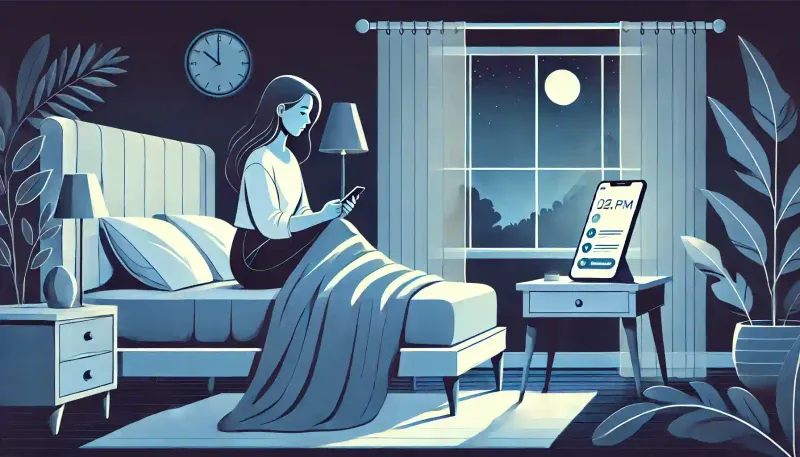14 Traits of Women Who Accept Poor Treatment in Relationships And 3 Alarming Signs It’s Time to Walk Away
Love should never cost your peace, your power, or your sense of self. I know too many amazing women who’ve ended up in relationships that drain their spirit—not because they’re weak, but because their hearts are almost too big for their own good.
We’re told to be loyal, to stick it out, and to forgive, even when it means putting ourselves last. But there’s a difference between loving deeply and losing yourself in the process.
Staying too long with someone who treats you badly doesn’t make you strong or noble; it just chips away at your confidence until you barely recognize yourself. If you’re reading this and feeling a little called out—don’t beat yourself up.
You’re not alone, and seeing these patterns is the first step toward change. Let’s talk real about why we stay, what keeps us stuck, and the signs it’s time to finally walk away.
1. The Chronic Over-Explainer

Ever caught yourself talking in circles, hoping you’ll finally get your point across? That’s the trap of over-explaining. It’s like rehearsing every conversation in your head before it even happens, convinced you’ll be understood if you just say it right. The problem? You’re often talking to someone who’s not even trying to listen.
Over-explaining is exhausting—it turns every disagreement into a marathon. You worry your feelings are too much or your boundaries need a full PowerPoint presentation to be respected. This habit sneaks up on you until you can’t remember the last time you felt truly heard.
Here’s the kicker: explaining yourself doesn’t make your needs more valid. If someone wants to get you, they will. If not, no speech in the world will change that. Trust that your voice matters, no monologue required.
2. Endurance is Mistaken for Devotion

Some people treat relationships like an obstacle course, where love equals surviving every hardship and test. If you’ve ever believed you just have to hang on long enough for things to get better, you know this struggle well. Endurance sounds noble but can leave you silently suffering for years.
You start to confuse pain with proof that you care. Friends might say you’re strong for staying, but inside, you’re just tired—waiting for a reward that never comes. Loyalty is beautiful, but when it’s only keeping you in pain, it’s misplaced.
Love shouldn’t feel like an endless marathon. You can support someone and still honor your own needs. Staying through everything doesn’t mean your relationship will magically transform; sometimes the bravest thing is letting go of the finish line completely.
3. The Blame Sponge

If your first reaction to any argument is, “Was it my fault?”—you might be carrying more guilt than you deserve. This self-blame creeps in quietly, teaching you to scan every situation for what you could’ve done differently. Instead of seeing both sides, you shoulder the whole burden.
You start apologizing even when you haven’t done anything wrong. Over time, you question your own judgment and start believing you’re always the problem. That kind of thinking doesn’t just damage your confidence—it keeps you stuck in unhealthy cycles.
The truth? No one should have to be perfect to be loved. Healthy relationships include mistakes and forgiveness on both sides. If you’re always holding the blame, it’s time to put some of it down and remember your worth isn’t tied to being flawless.
4. The Over-Giver’s Dilemma

You know the type—the friend who’ll drive across town at midnight just to cheer you up, or the girlfriend who never says no to another favor. When you over-give, you start to believe love is earned through service. If you just do enough, care enough, or fix enough, maybe you’ll finally be valued.
But all that giving leaves you running on empty. Your partner grows used to the constant care, and before you know it, your needs collect dust in the corner. It’s a lonely place, waiting for someone to notice your efforts.
The hard truth? Kindness is beautiful, but it isn’t currency. Love isn’t about keeping score or bending over backward for scraps of affection. You deserve someone who gives back, not someone who only takes.
5. Red Flags? More Like Wallpaper

You know those red flags everyone else sees? Sometimes they just blend into the background—like furniture you stopped noticing. When dysfunction feels familiar, you shrug off warning signs as “just how relationships are.”
Maybe your partner’s jealousy seems normal because you grew up watching similar dynamics. Or perhaps you downplay rude comments, thinking it’s just teasing. Over time, you get so used to the discomfort that you barely register when lines are crossed.
But here’s the thing: what’s familiar isn’t always healthy. You don’t have to accept chaos as your baseline. Red flags are meant to be noticed and acted on—not folded into the decor. Trust yourself to recognize when something is off, even if it’s always been that way.
6. Fear of Flying Solo

Being alone gets talked about like it’s the worst fate imaginable. So, you stick around in unhappy relationships because the alternative—nights by yourself, solo brunches, no comforting text—feels terrifying. The fear of loneliness keeps you clinging to someone who doesn’t make you happy.
But staying with the wrong person just to avoid being alone is its own kind of isolation. You end up shrinking parts of yourself, hoping to be “enough” to keep them around. The silence in the relationship gets louder than any quiet night alone.
Real talk: loneliness is tough, but it’s not the enemy. Being on your own for a while gives you space to heal, rebuild, and figure out what you actually want. Sometimes the bravest thing is making peace with your own company.
7. Needs? What Needs?

Ever convinced yourself that wanting more is asking for too much? It starts with skipping over your own desires—maybe downplaying your need for affection, support, or even just some thoughtful conversation. You end up accepting crumbs and telling yourself you’re being “easygoing.”
The trouble is, ignoring your needs doesn’t make them disappear—it just buries them. Your partner gets used to giving less while you pretend it’s enough. Over time, resentment simmers under the surface.
Here’s the truth: everyone deserves to have their needs met. Dismissing your own feelings doesn’t make you chill, it makes you a ghost in your own story. Start voicing what matters to you. If someone can’t handle it, maybe they’re not your people.
8. The Potential Trap

Falling for potential is like buying a fixer-upper house—it might look charming, but you’re signing up for a lot of work. You see flashes of who your partner could be, and suddenly, every good moment feels like proof that change is coming. It’s seductive, that hope.
But reality keeps knocking. You excuse hurtful behavior because you’re clinging to a future that hasn’t happened yet. The person in front of you gets lost behind all the “what ifs.”
Staying for potential means you’re loving a dream, not a person. It’s okay to see the best in people, but don’t let it cloud the truth of what’s actually happening. You deserve real, not just promises.
9. When Struggle Feels Like Passion

Ever heard the saying, “no pain, no gain”? Sometimes, we start to believe that struggle makes love stronger. Passion gets tangled up with chaos, and suddenly, every fight feels like proof of how much you care.
You might romanticize the ups and downs, thinking it’s all just part of a deep, soulful connection. But here’s the harsh secret: real love isn’t about constant drama. If you’re tired, anxious, and always waiting for the next storm, something’s off.
Healthy relationships are steady, not stormy. There’s room for excitement without heartbreak and passion without pain. If struggle is the main thing holding you together, it might be time to rewrite your story.
10. Crumbs Dressed Up as Connection

Waiting for a late-night text that says “you up?” isn’t real connection—it’s settling for crumbs. You start to believe that occasional compliments, random attention, or the bare minimum is enough to keep you satisfied. The rare moments of affection become your lifeline.
You tell yourself that things will get better, that this is just a phase. But deep down, you know you deserve more than being someone’s afterthought. The problem isn’t wanting love; it’s accepting so little of it.
Don’t fool yourself into thinking you’re being patient. You’re just selling yourself short. Ask yourself what true connection feels like…and don’t settle for less.
11. Keeping Secrets from Your Circle

It’s wild how good we get at hiding the truth from our closest people. Maybe you skip the details so your friends won’t worry, or avoid family dinners to keep the peace. Deep down, you know something’s not right, but saying it out loud would make it all real.
Keeping secrets isolates you. You end up feeling like you’re living a double life—smiling for the world while struggling in private. The more you hide, the harder it becomes to reach out for help.
True friends want you safe and happy, not perfect. You don’t have to pretend or make excuses. Opening up is scary, but it’s also a first step toward support and change.
12. Conflict Avoidance Squad

Does your stomach drop at the thought of a tough conversation? You’re not alone. So many women avoid confrontation, choosing silence over awkwardness—even when they’re hurt. Keeping the peace starts to matter more than defending yourself.
But swallowing your feelings doesn’t erase them. They build up, turning into resentment or even anxiety. Soon, you might not even remember what you wanted to say in the first place.
Your feelings deserve a voice. Speaking up isn’t about picking fights—it’s about standing up for yourself. If someone loves you, they’ll want to know when you’re hurting.
13. Chasing the Unpredictable

There’s something dangerously magnetic about unpredictability. When love is inconsistent—hot one day, cold the next—you start mistaking the rollercoaster for romance. Excitement becomes confusion, but it’s so addictive you can’t look away.
You read into every text, every mood swing, trying to decode what’s really happening. The unpredictability keeps you guessing, but rarely gives you the security you crave. It feels thrilling at first, until it turns exhausting.
Consistency isn’t boring—it’s safe. If you can’t count on stability, what are you really holding onto? Don’t mistake mixed signals for magic.
14. Emotional Backpack Carrier

You ever feel like you’re carrying the whole relationship on your back? Conflict, communication, healing—you handle it all while your partner checks out. It’s emotional labor, and girl, it’s heavy.
You end up being the peacekeeper, therapist, and fixer rolled into one. Your partner doesn’t step up, so you stretch yourself thin trying to hold everything together. After a while, it just feels like loneliness disguised as responsibility.
Healthy love means sharing the load. You shouldn’t have to play every role on your own. Ask yourself: who’s supporting you while you’re picking up the pieces?
15. Alarm Bell #1: Anxiety Over Love

Love isn’t supposed to make you nervous every day. If your relationship keeps you on edge—wondering if you’ll be ignored, criticized, or blindsided—something’s seriously off. Your body knows before your brain does: if you feel more anxious than cared for, that’s a huge red flag.
You might start losing sleep, clenching your jaw, or shrinking into yourself. That’s not love, that’s survival mode. No one should have to tiptoe around their own home or partner.
You deserve a relationship where you feel safe. If anxiety has become your new normal, it’s time to listen to what your heart (and body) are screaming.
16. Alarm Bell #2: Gone Girl Vibes

When you start losing pieces of yourself to keep the peace, it’s not just the relationship that’s at risk—it’s your whole sense of self. Maybe you stop laughing as much, hide your opinions, or give up things you once loved. That invisible disappearing act is slow but brutal.
You shouldn’t have to trade your voice or your values for “harmony.” It’s a red flag if you barely recognize yourself in the mirror, or if friends say you’ve changed. Love shouldn’t cost you your identity.
Ask yourself: when’s the last time you truly felt like you? If your answer is, “I can’t remember,” it’s time for a serious reality check.
17. Alarm Bell #3: The Broken Record

If every fight ends with the same tired apologies and nothing ever changes, you’re stuck in relationship Groundhog Day. You find yourself hoping and waiting for real change—but it never comes.
It’s a merry-go-round of the same arguments, the same promises, and the same disappointments. At some point, you start feeling foolish for believing things could be different. Hope becomes a trap instead of a lifeline.
You deserve growth, not just empty words. If you’re replaying the same heartbreak on loop, maybe it’s time to hit stop and choose yourself instead.







